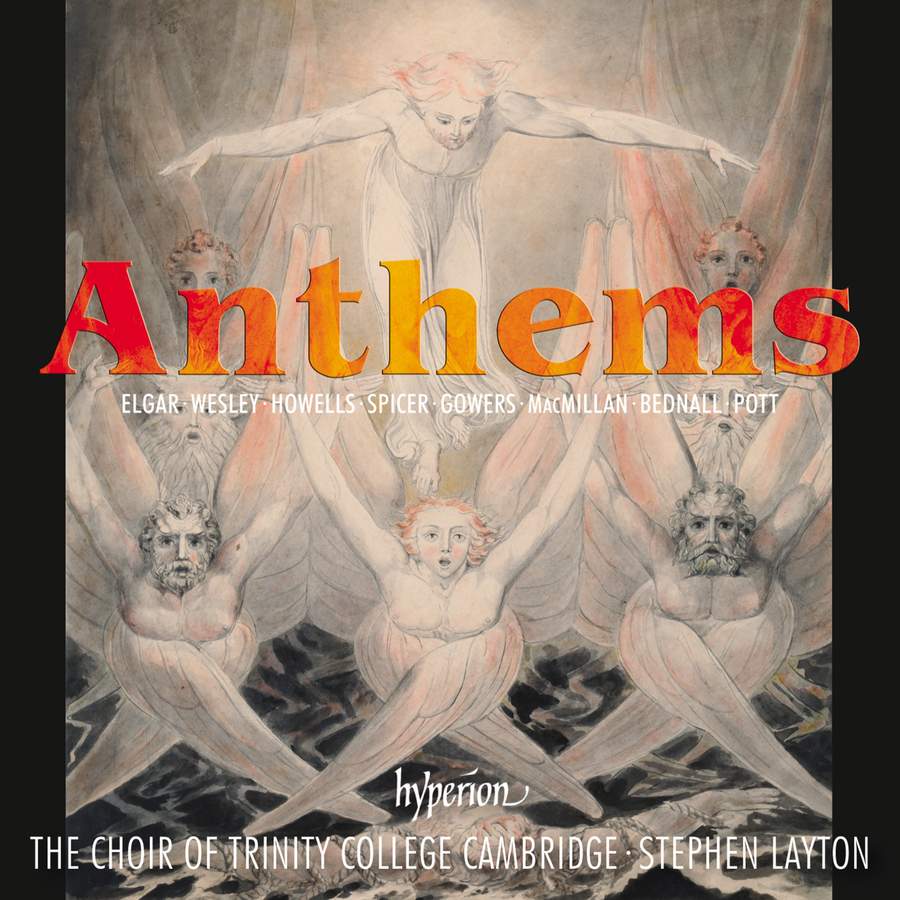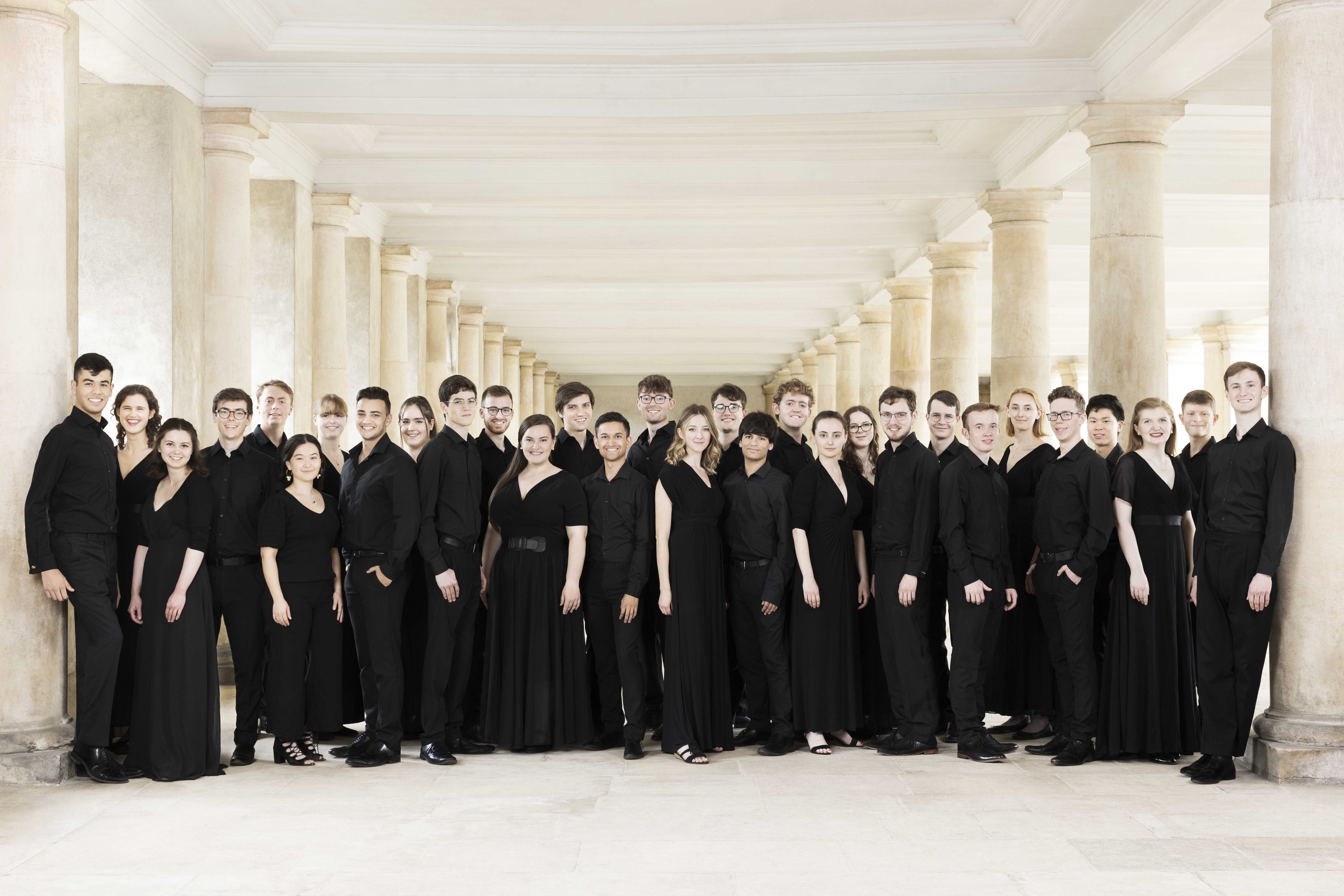Anthems Vol.1 - Yorkshire Times
> See recording details...“Stephen Layton will be a hard act to follow at Trinity College, Cambridge. His success in creating one of the finest collegiate chapel choirs in the country has seen many budding choral and organ scholars apply for scholarships, and the quality of music making in the college chapel is first-class.
This new release bears testament to his work. An album representing some of the finest anthems in the English choral tradition’s repertoire from the 19th and 20th centuries, it is also a delight to have a compilation of anthems from different epochs and composers. There seems to be a trend these days to relegate some of the 18th, 19th, and early 20th century works to the recording archives as the dial has firmly turned to the 21st century. That’s not to denigrate the composing talent that the UK is producing, which is striking, but it would be nice to have a mixture of styles to compare, especially if recorded to the quality of this release.
Trinity College Choir decamped down the road to Ely Cathedral for this recording, and with the sound engineers from Hyperion knowing where to expertly place the microphones, we have a disc that captures the full sound superbly, making a top-class production. The balance between choir and organ is magnificent, and the young voices are outstanding, blending well and with excellent diction.
The detail of the organ in all its plangent glory creates moments of exhilaration that initiate a rhapsodic response, nowhere more so than in the accompaniment to Elgar’s resplendent Give unto the Lord. Surely organ scholar Harrison Cole called on Jonathan Lee to work with him at one point, such is the mastery and adroitness of the playing. The stop reduction on the final B flat is marvellously controlled. I remember hearing a performance sung in Ripon Cathedral at the Northern Cathedrals Festival that was electrifying under Ron Perrin; that feeling of excitement has not been lost in this particular recording process. Elgar’s other large-scale work, Great is the Lord, is no less thrilling, again with wonderful accompaniments.
There is plenty for the organ scholars to enjoy as Ely’s Harrison & Harrison instrument is showcased in all its grandeur, not just full organ but also the solo reeds and quieter stops.
Florian Störtz’s lovely resonant bass voice begins S.S. Wesley’s verse anthem The Wilderness with such smooth control. He joins the perfectly balanced singers in the division: soprano Sumei Bao-Smith, alto Katherine Gregory, and tenors Daniel Atkinson and Roshan Patel, in one of the best performances I have heard in ages. The drama and word painting are effectively executed, and Harrison Cole’s rhythmic accompaniment in the background loses none of the excitement. A lesson in how to perfectly accompany a choir — oh, to see Wesley anthems back on cathedral music lists!
The drama continues with Paul Spicer’s Come Out, Lazar, with its opening reed fanfares and declamation from the choir in another rousing performance where the words of the anonymous fourteenth-century Middle English are expressively matched to the music. Patrick Gowers wrote his Viri Galilaei for double choir, soloists, and two organs for the consecration of Richard Harries as Bishop of Oxford at St. Paul’s Cathedral in 1987. As Professor Jeremy Dibble points out in his instructive notes (an added bonus with lots of first-rate contextual information), the choirs’ continually upward phrases culminate in the joyful sound of the trumpet. After all the clamorous sounds, there is a diminuendo as Gowers ends his composition quietly. James Macmillan’s O give thanks unto the Lord is another piece where the virtuosic dexterity of the organ scholars shines with rhythmic energy, as do the glorious voices.
The house of the mind is characteristically Howells, with lovely harmonies performed with a presence that encapsulates cathedral and chapel music.
Harrison Cole is given a solo in Francis Pott’s Toccata, ideally demonstrating the organ’s true colour palette in an authoritative performance that builds in intensity.
David Bednall’s pedigree as a composer in the genre is well documented, and this last piece on a splendid album, Everyone sang, builds and builds to, as Dibble writes, a fff and a top C for sopranos before it recedes in volume.
Each of the composers represented on this impressive recording has distinctive harmonics and creates wonderful drama, and all of them have made a valuable contribution to English choral music.
This album is a sizzling paean of triumphant praise and thrilling and commanding performances.”
Andrew Palmer

Hyperion Records CDA68434
